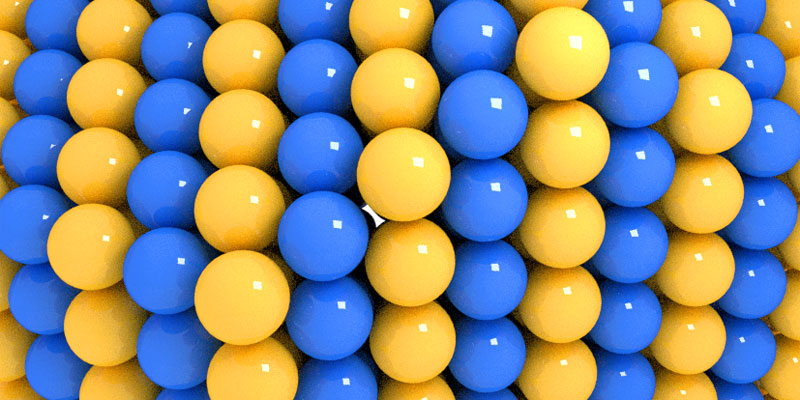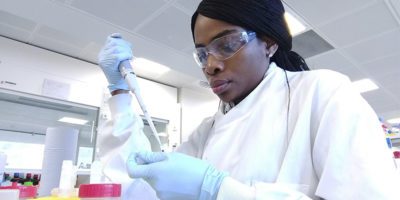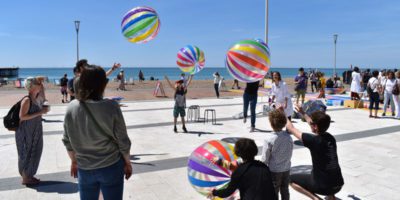Laia Delgado Callico is a speaker at Soapbox Science London and a physics PhD student at King’s College London, studying the properties of metallic nanoparticles. Laia is an active promoter of women in STEM and equality, diversity and inclusion, having been a member of the Women in Physics Society at King’s College London and sitting at the board of the Equality, Diversity and Inclusion Committee of the London Centre for Nanotechnology. She is also passionate about science communication, having worked with the Institute of Physics and other organisations as a campus ambassador organising outreach events.
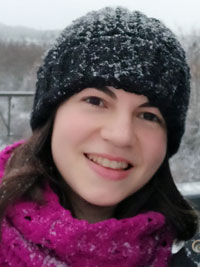
Laia is speaking at the London Soapbox Science event, which takes place on 23rd June 2021. This will be hosted via a Zoom webinar. The title of her talk is: “The curious case of melting at the nanoscale.”
Alternating between chemistry and physics
I completed my secondary education in Barcelona. One of my favourite things about the Spanish education system is that you continue studying the core subjects: philosophy, history and languages (Catalan, Spanish and English), in addition to the topic subjects that you choose: chemistry, biology, physics and mathematics, in my case.
Receiving a more generalist education helped me decide what degree I wanted to study at university. I chose chemistry thanks to my chemistry teacher, who is a chemist and was very passionate about the subject, making me fall in love with it.
I studied chemistry at the University of Barcelona. During my degree, my favourite subjects were the physical chemistry ones, so I chose to specialise in this area.
In my final year, I applied for an Erasmus grant to go to Imperial College London to complete my final year research project. I got the grant and got accepted into Imperial, so I moved to London. I completed a computational chemistry research project and I decided to stay in London for my master’s degree.
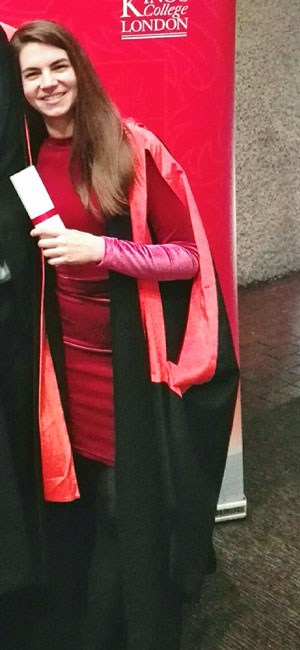
My master’s thesis was also a computational chemistry project but now applied to a biological system and using different methods. Then I decided to continue in research and do a PhD. My PhD is in the Physics Department but is highly interdisciplinary, sitting at the interface between chemistry, physics and materials science.
Working with physicists has been challenging, I have had to adapt myself to different approaches and it has helped me understand better the chemistry knowledge I already had.
Big research on small subjects
I study metallic nanoparticles, from very small sizes up to one thousand atoms. My research is basic science, focusing on understanding the principles and on the advancement of knowledge rather than solving a specific problem.
I am involved in many different projects, which require different methodologies depending on the size that I am studying.
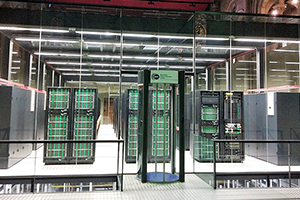
Bringing science to life using everyday concepts and objects
As my work has no immediate applications, I find it very challenging to explain it in an engaging way. I always try my best to find suitable examples to explain abstract physical concepts.
For the talk I am doing for Soapbox Science, I explain why nanoparticles have a lower melting temperature using balls of rice of different sizes, where each grain of rice represents an atom. At the same time, I explain how the melting temperature of a material does not change depending on the amount of substance that you have. For this, I compare an iceberg with an ice cube.
I use everyday concepts and visual examples to make my science more accessible. I always try to prepare myself by anticipating questions that the public may ask and try to read more scientific papers to refresh my knowledge about the topic of my talk. I especially focus on applications that can derive from my work.
Losing the ‘stop and stare’ effect when scientific talks are moved online
I believe that getting the science that we do out there is our duty as scientists. Involving the public in our research helps create public trust in science. Additionally, events like Soapbox Science help make visible women scientists, challenging perceptions of who a scientist is and encouraging more women in science.
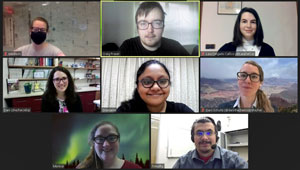
Trust Einstein: Sometimes you have to do things differently
If you are trying to solve a problem, you need to think about it in a different way.
Paraphrasing the quote attributed to Einstein: “You can’t do the same thing you’ve always done and yet expect different results.”
Involving diverse people in science will produce better science, because everyone brings their own personal views to the table. If science is only produced by the few, it will mainly focus on solving the problems of the few.
Look for initiatives, join societies, and you can pursue the career you want
I would encourage everyone to pursue the career that they really want and enjoy. Now, there are a lot of initiatives that are looking to attract more women into physics and STEM careers, they organise a lot of events for schools.
I think it is important to have visible representation. For this reason, I have collaborated giving talks at schools talking about my journey into science. There are also women in physics and women in STEM societies at many universities that can be a starting point of contact for someone looking to apply at that university.
The more opportunities, the better!
This year I decided to say yes to opportunities that I was offered, even if I felt I was not prepared and to apply to challenging things, even if they seemed scarier. That’s how I have ended up participating in Soapbox Science London.
I have also taken part in the 3 Minute Thesis competition at King’s College London, where I was a finalist. I also recorded a podcast and won a commissioning award at the Early Career Physics Communicator Award from the Institute of Physics.
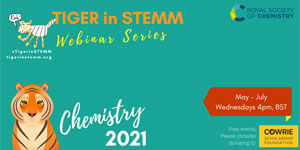
I have enjoyed all these opportunities a lot, so I am looking forward to continuing to participate in similar events. There are many other initiatives that sound very exciting, such as FameLab. or giving a talk at a Pint of Science event.
I have also taken different courses on public engagement and science communication so maybe in the future I will organise my own science outreach activity!
https://www.linkedin.com/in/laia-delgado-callico/
https://twitter.com/SoapboxScience
https://twitter.com/KingsCollegeLon
Main image: Magnin yann, CC BY-SA 4.0

